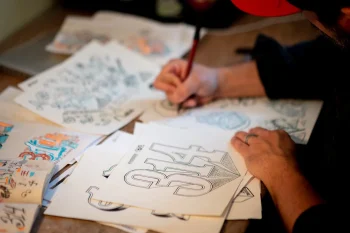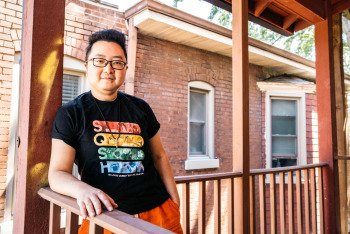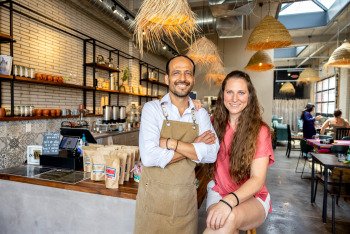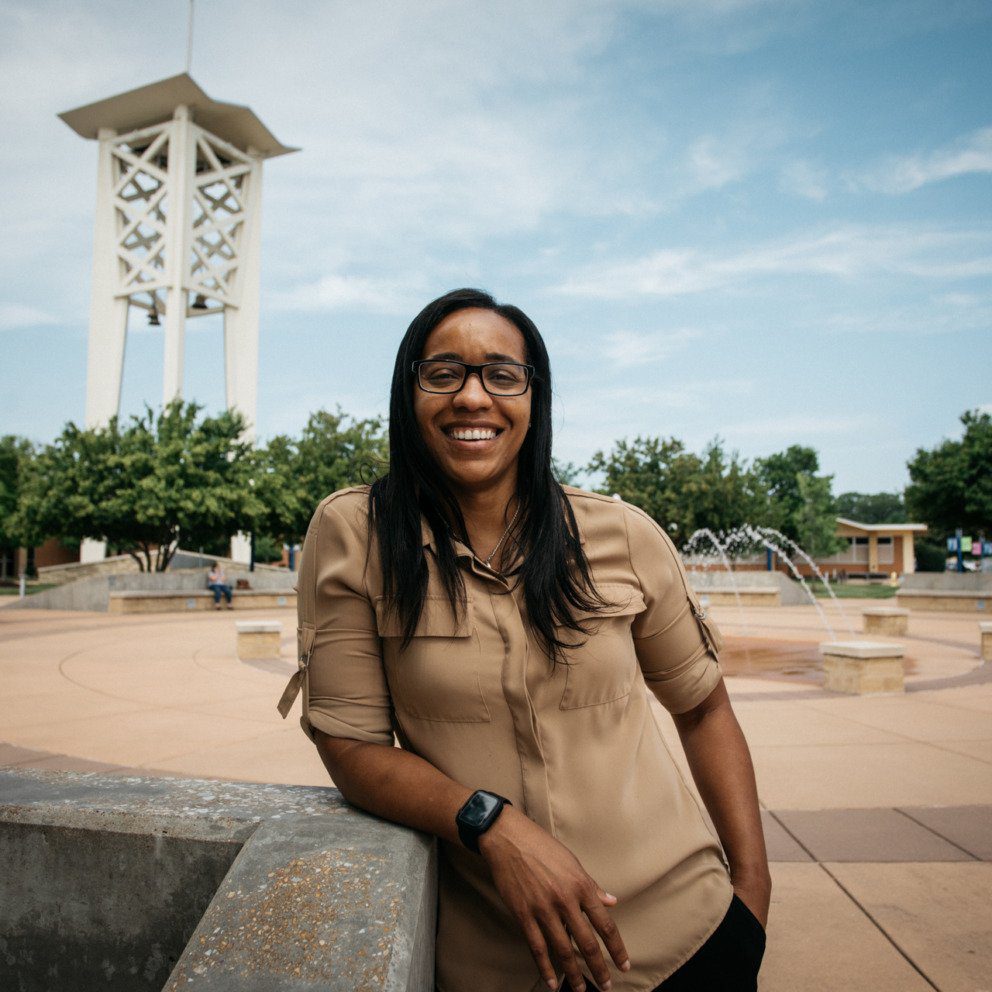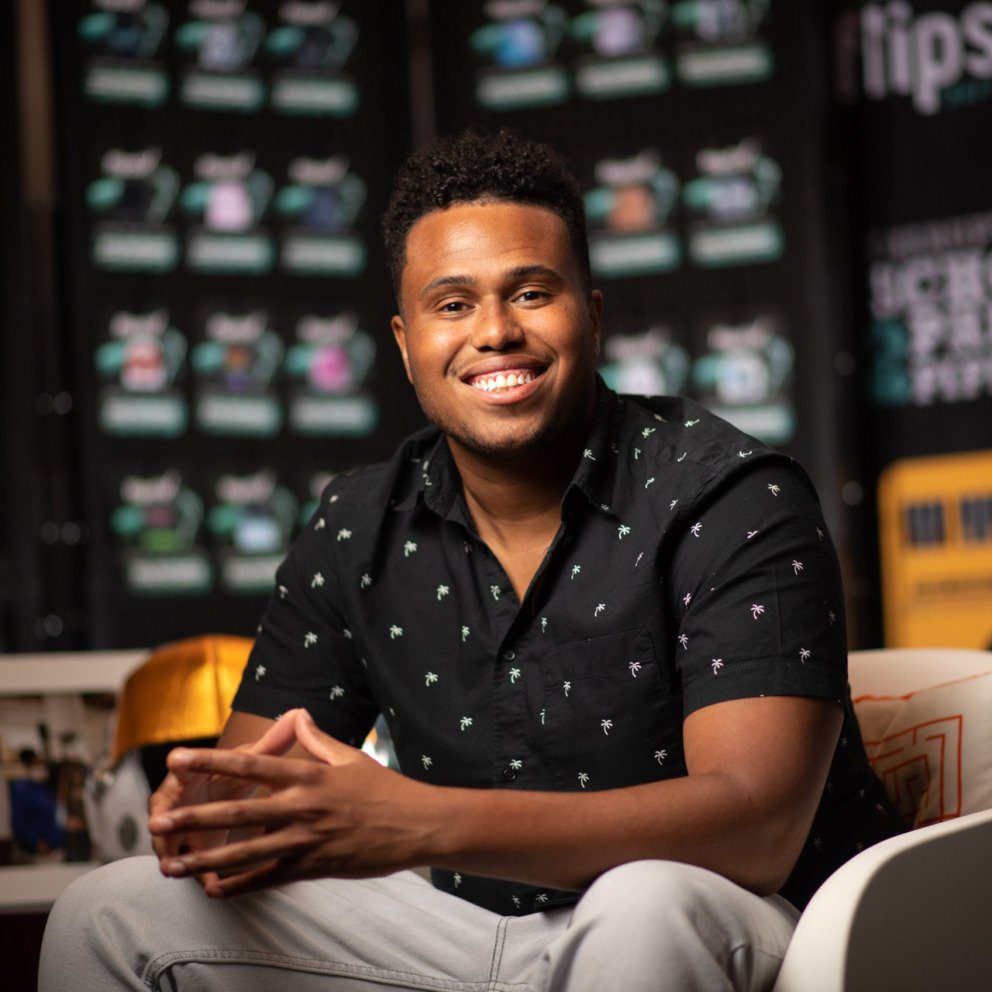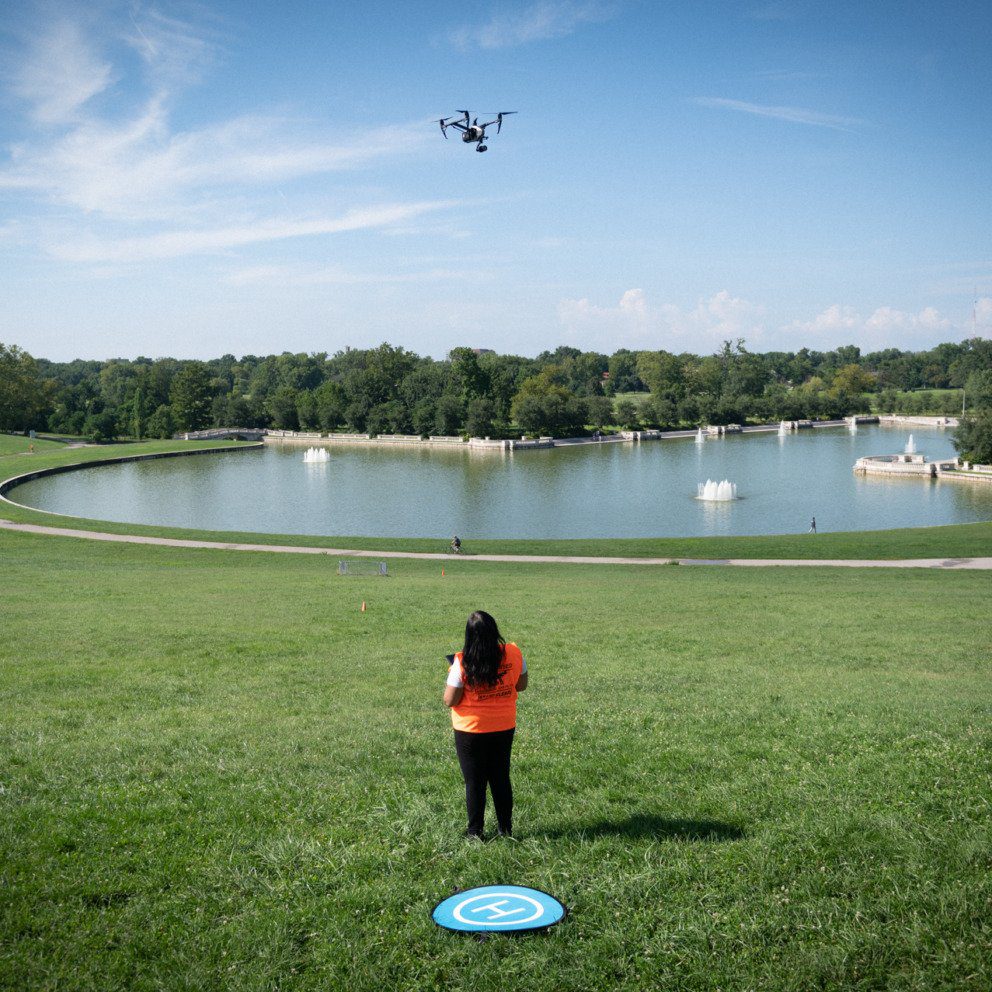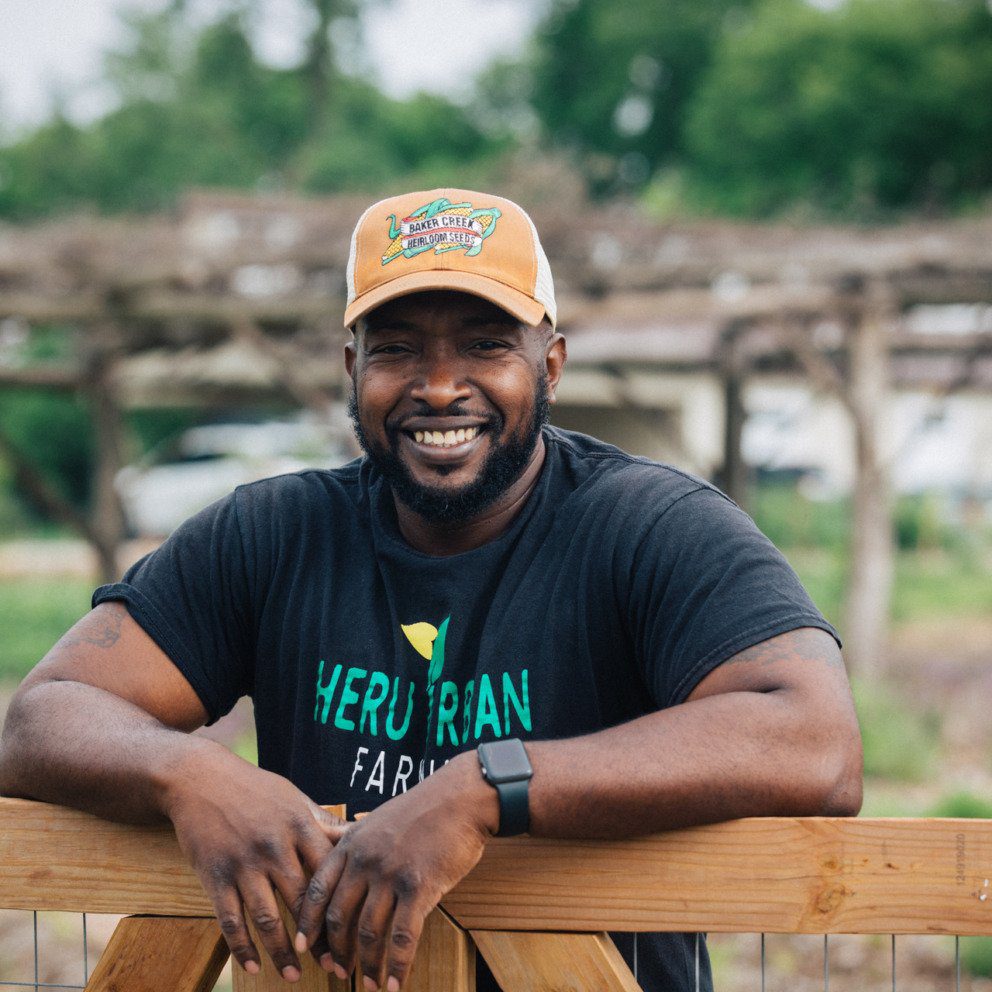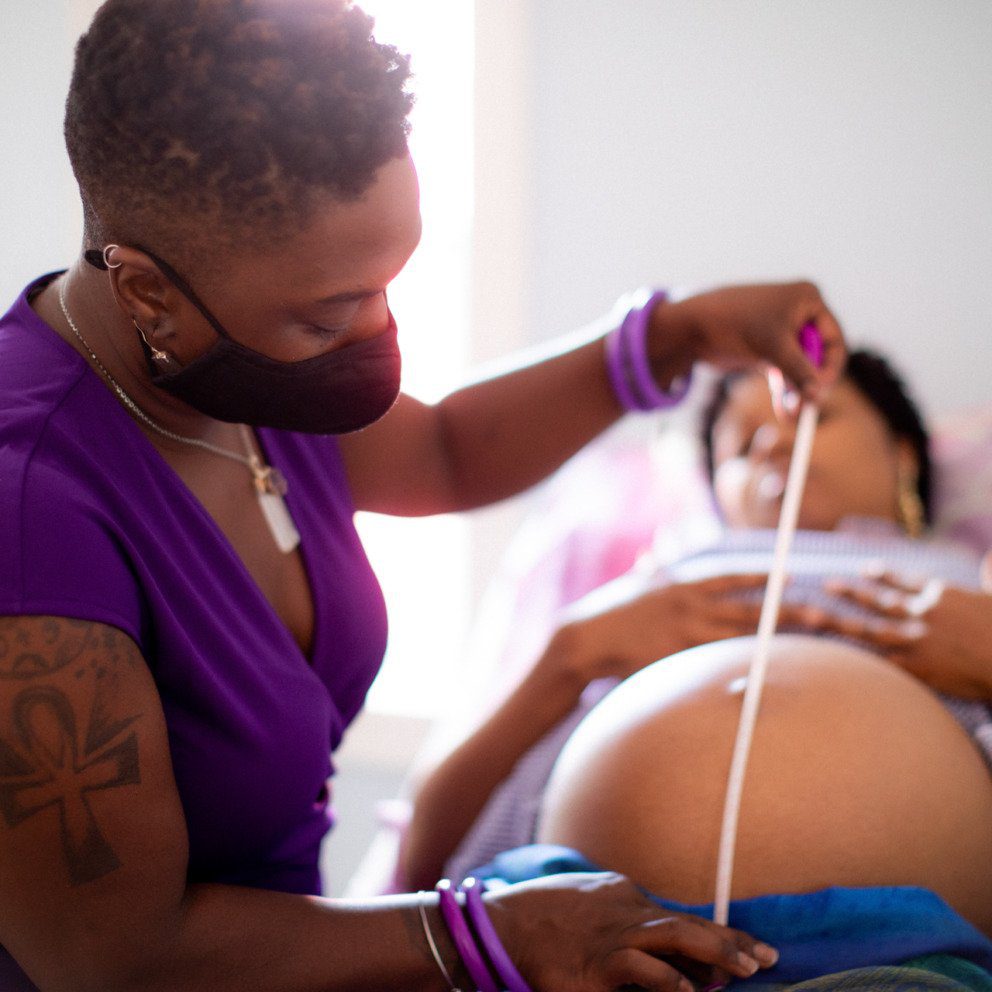A Promising
Prescription
Educator-turned-entrepreneur Marcus Howard is raising the standard of pharmacy care with the launch of GreaterHealth Pharmacy & Wellness in the Delmar DivINe.
– Marcus Howard
Marcus Howard has dedicated his career to counteracting the impact of social inequities on historically disadvantaged communities.
The North St. Louis native attended Metro High School. After completing his bachelor’s degree, he immediately joined Teach For America and quickly rose up the ranks in that organization as a middle school math and science department chair and then as chief innovation program officer, where he helped shape a vision for how education can transform the lives of low-income children of color. He went on to earn his doctorate in educational leadership, policy and human development from North Carolina State University.
But it wasn’t until he encountered community pharmacy owner Martez Prince while serving on an advisory board together for minority-owned businesses in Charlotte, North Carolina, that he identified his specific calling as a man on a mission “to change the world one idea at a time.” That mission was to open a radically inclusive, community-based pharmacy of his own in an underserved area of St. Louis.
“I believe that whatever change you want to see in the world, you have to be yourself,” Howard says. “And I really got to see the impact that Martez had in the community because he had created a trusted source of health care. I saw how people gravitated toward it, how they were becoming healthier and how he was able to solve some other challenges as well. I wanted to bring this model to St. Louis. I knew it would work here, and I knew the St. Louis region really needed it.”
Howard’s first step toward making this dream a reality was to launch a GoFundMe campaign, which generated $8,000 in seed capital but proved more effective in raising awareness about the project. After reaching out to nearly 80 individuals and organizations, he landed a generous backer in the Missouri Foundation for Health, a philanthropic organization similarly focused on building a more equitable future through strategic investment and resource sharing. The project also caught the attention of Build-A-Bear Workshop founder and former CEO Maxine Clark. As the leader of a real estate development called Delmar DivINe, which seeks to transform the city’s notoriously segregated Delmar Divide, she invited Howard to sign a lease with a newly created hub for area businesses and nonprofits, and offered him her services as a business mentor.
With the support of these and other members of the St. Louis community, Howard’s initial idea has materialized as a fully operational business called GreaterHealth Pharmacy & Wellness. After opening its doors to the public in November 2022, GreaterHealth hosted a formal launch event Feb. 28 that reflected the widespread appetite among both civic leaders and everyday St. Louisans for Howard’s model of culturally sensitive and community-minded pharmacy care.
With all this support for a “radically inclusive” and “culturally responsive” model of care, what exactly does that mean? “Radically inclusive” implicitly acknowledges that certain identity groups have historically been marginalized by systemic inequities within the United States health care system. This claim is widely substantiated by health disparities research, such as studies showing higher maternal mortality rates among Black women. “Culturally responsive” and “culturally competent” are decades-old terms used by health care providers, educators and other human services professionals that posit effective cultural and cross-cultural communication as key to improving the quality of these services.
Howard cites the example of a recent 90-year-old patient. “The pharmacist said something like, ‘I see you as my grandmother. I see you as someone who is part of my family, so I treat you as if you’re part of my family,’” he says. “Culturally responsive care is an academic concept, but in practice, it’s not so academic, right? It’s treating people as if they’re familiar.” The patient, with tears in her eyes, went on to tell the GreaterHealth staff how valued and cared for she felt in their hands versus under previous health care providers who she felt had discounted her because of her age, Howard says.
He attributes this patient’s positive experience in part to the mandatory cultural competency training required of all GreaterHealth employees. The training involves roughly four hours of scenario-based, personalized modules where new hires gain practice interacting with different patient populations in an open and friendly manner. From there, they receive continuing education through workshops and online training facilitated by a variety of community partners.
An entirely different example of culturally responsive care at GreaterHealth — and one that also has resonated powerfully with customers — takes the form of a product called Ourtone Band-Aids, which match darker skin tones. Howard began stocking them as an experiment and soon noticed that clients were purchasing them in bulk. “They make people feel seen,” says Howard.
The two most popular services thus far, according to Howard, are free home prescription delivery across the city and county, and medication counseling, also known as medication therapy management. Through the latter, pharmacists help patients optimize their health by making recommendations and providing information in areas like diet, potential side effects and alternative treatments. Other services include medication synchronization, which allows patients to coordinate their refills for one mass pickup per month, and consultations, where they can receive a quick health checkup without having to visit the doctor.
In fact, SSM Health has built a full-fledged express clinic inside the pharmacy — one of many community partnerships secured through Howard’s leadership. “Every day and at all times that the pharmacy is open, there’s a nurse practitioner who can prescribe medication and a physician’s assistant who can talk to patients about any health issues they are experiencing,” he says.
Another partner is the St. Louis Community Credit Union, which carries the pharmacy’s free delivery cards in select branches and is collaborating with Howard on a joint marketing campaign. “Our goal together is to make sure the community is healthy and wealthy, right? So we’ve collaborated on a community health, community wealth initiative,” he explains.
And Howard is building reciprocal relationships with institutions of higher education across the region. He is working with the St. Louis College of Pharmacy to design a unique pathway for pharmacy students around radically inclusive, culturally responsive care, and he is supporting the school’s research about how to best serve patients from historically underrepresented groups via collaborations between primary care, pharmacy care and mental health providers.
Meanwhile, the Brown School at Washington University in St. Louis is leading the evaluation process for GreaterHealth. “With the Missouri Foundation for Health as our primary funder, we’re not only on the hook for being a sustainable business but also for improved health outcomes. That’s where the Brown School comes in — they have created a logic model to help us evaluate our impact,” Howard says.
When it comes to collaborating with like-minded partners, Howard says being part of Delmar DivINe is “everything.” He is working with fellow tenant Seed St. Louis, which grows fresh fruits and vegetables, on selling a line of juices made from their produce as well as harnessing GreaterHealth’s free delivery infrastructure to make healthy food more accessible to community members. And he is partnering with Behavioral Health Response, which provides mental health services, to host a community resource fair for the historic west side neighborhood.
“These are both really cool and developing partnerships,” Howard says. “Another really cool partnership outside Delmar DivINe is with Nutrible, a dietary meal delivery platform. In a few months, we will be working with them to identify community members who need access to medication delivery and dietary meals to increase the likelihood of patients improving chronic conditions through medicine and a healthy diet.”
Looking forward, Howard plans to scale the GreaterHealth model in other historically underserved areas of St. Louis and Missouri and eventually expand the concept throughout the United States. “We want to create a new brand of pharmacy care,” he says. “And we’re already doing that. When you walk into GreaterHealth, it feels different. You’ll see how much we care.”
Join the Story
- Howard welcomes potential partners, collaborators and investors to email him directly at marcus@greaterhealthpharmacy.com.
- New patients can call 314-200-5313 or visit the GreaterHealth website to transfer their medications.
- Read other STLMade stories of St. Louisans working to improve health outcomes:

